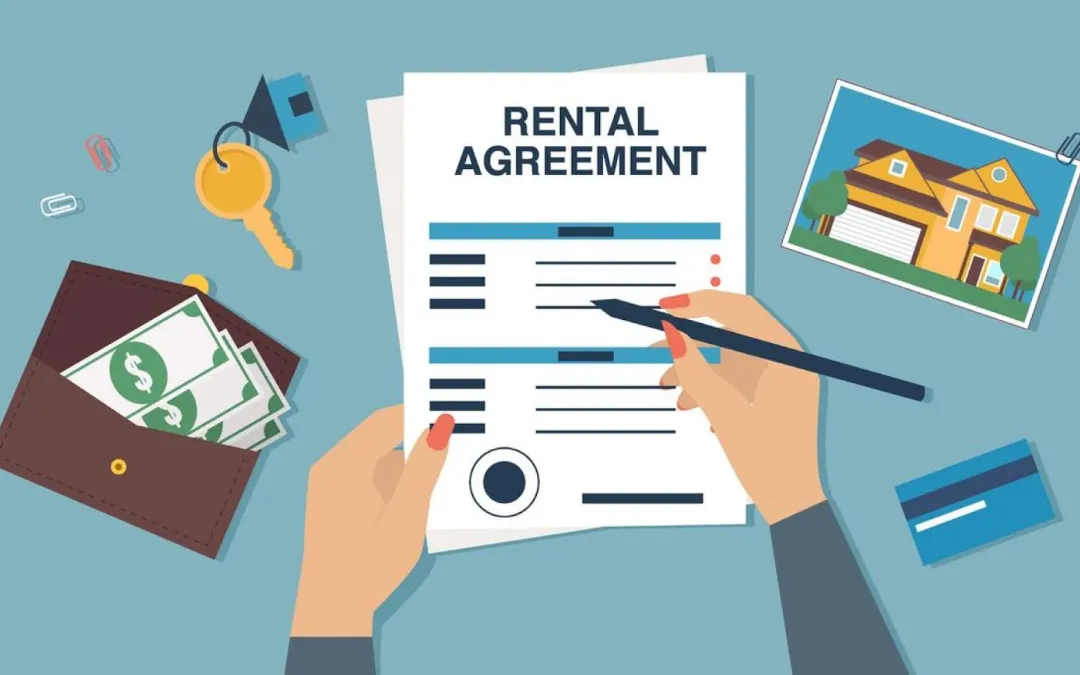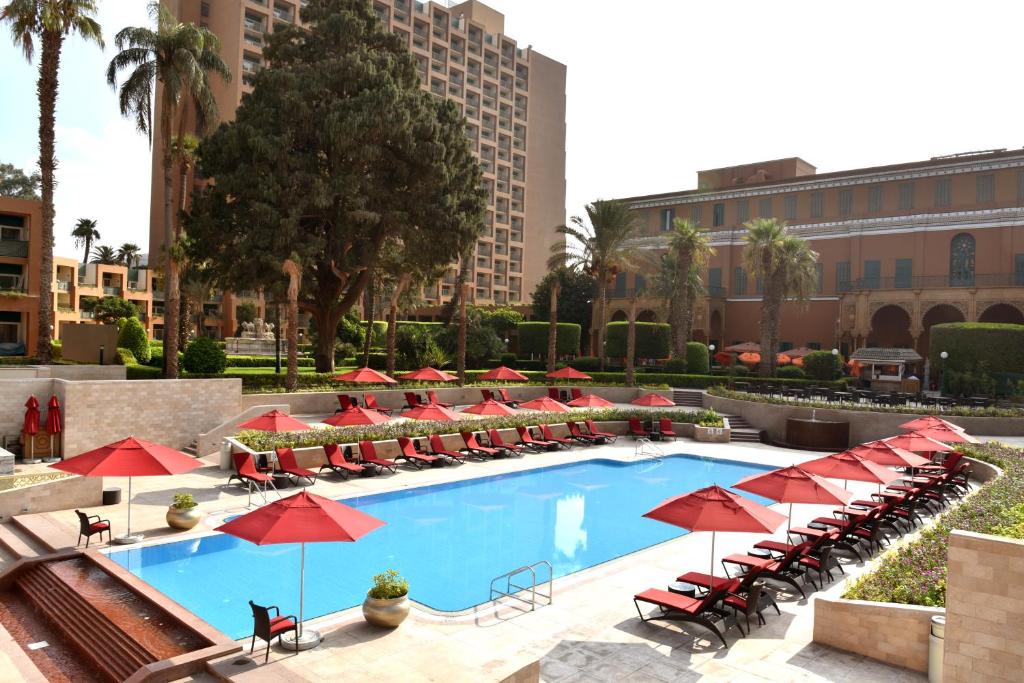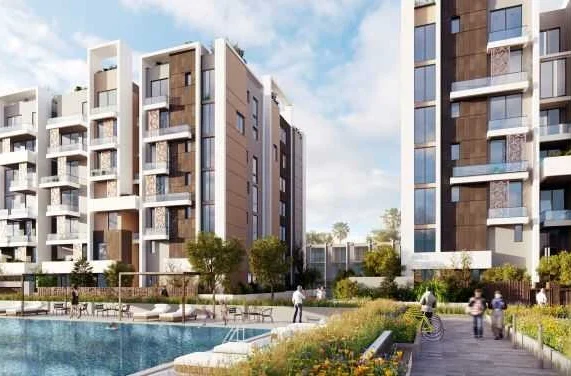Overview of Rental Laws in Qatar
Renting a property in Qatar can be challenging, especially for those unfamiliar with the country’s rental laws. Here are some key points to keep in mind when it comes to rental laws in Qatar:
- The lease law in Qatar is governed by the provisions of Ordinance No. 4 of 2008 Regulating Property Leasing in Qatar, as amended by Law No. 20 of 2014.
- The rental law in Qatar requires that all rental contracts be in writing and registered with the municipality.
- The rental contract must include the following information: the names of the landlord and tenant, the location of the property, the term of the lease, the amount of rent, the method of payment, and any other terms and conditions agreed upon by both parties.
- The maximum length of a rental contract in Qatar is three years, and the rent cannot be increased during the lease term.
- The landlord is responsible for maintaining the property and ensuring it is in good condition. The tenant must tell the landlord in writing if any repairs are needed.
- The council of ministers has the authority to regulate the rental market in Qatar and set maximum rent levels to ensure public order and protect tenants from exploitation.
- The rental law in Qatar also provides for the ejection of tenants who fail to pay rent or violate the lease terms, subject to due process of law.
Overall, landlords and tenants need to be familiar with the rental laws in Qatar to avoid any legal issues or disputes.
Understanding Rental Agreements
When renting a property in Qatar, it is essential to understand the rental agreement. This section will provide a comprehensive guide to the components of a rental agreement, the legal requirements for rental contracts, and the lease term and renewal.
Components of a Rental Agreement
A rental agreement is a contract with the landlord and the tenant that outlines the lease guidelines. The following are some of the essential components of a Rental agreement:
- Names of the landlord and tenant
- Address of the property being rented
- Rent amount and payment due date
- Security deposit amount and terms
- Duration of the lease
- maintenance responsibilities of the landlord and tenant
- Termination and renewal terms
- Penalties for early termination or breach of contract

Legal Requirements for Rental Contracts
The Qatar rental law regulates rental contracts to protect both parties. Here are some legal requirements for rental contracts:
- The rental contract must be in writing and signed by both parties.
- The contract must be written in both Arabic and English. In case of any discrepancies, the Arabic version will prevail.
- The maximum duration of a rental contract is three years. After the contract runs out, it can be renewed for an additional three years.
- The landlord cannot increase the rent during the lease term.
Lease Term and Renewal
The lease term is the period for which the tenant has the right to occupy the property. The lease term is typically one year, but it can be longer or shorter, depending on the agreement between the landlord and the tenant. It can be renewed upon its expiration, subject to the terms and conditions of the rental agreement.
- The tenant must notify the landlord at least two months before the lease expires if they intend to renew it.
- The landlord can refuse to renew the lease if the tenant has breached the rental agreement or if the landlord intends to occupy the property themselves.
- If the landlord intends to sell the property, they must give the tenant at least six months’ notice before the lease expiration.
In conclusion, understanding the rental agreement is crucial when renting a property in Qatar. Tenants and landlords must ensure that the rental agreement complies with the legal requirements and includes all essential components of the lease.
Tenant and Landlord Obligations
Tenant Responsibilities
Tenants in Qatar have certain obligations that they must fulfill during the tenancy period. These responsibilities include:
- Paying rent on time: Tenants must pay their rent on time and in full to avoid legal issues with the landlord.
- Keeping the property clean and tidy: Tenants must keep the property clean and tidy and ensure that it is returned to the landlord in the same condition as it was received.
- Using the property for its intended purpose: Tenants must use it for residential purposes only and not for any commercial or illegal activities.
- Reporting damages: Tenants must report any property damage to the landlord as soon as possible to avoid further damage and potential legal issues.
Landlord Responsibilities
Landlords in Qatar also have certain obligations they must fulfill during the tenancy period. These responsibilities include:
- Providing a safe and habitable property: Landlords must guarantee that the property is safe and habitable for the tenant to live in.
- Maintaining the property: Landlords are responsible for maintaining it and ensuring it is in good condition throughout the tenancy period.
- Providing necessary amenities: Landlords must provide necessary amenities such as water, electricity, and gas to the property.
- Following legal procedures: Landlords must follow legal procedures when dealing with tenants, such as providing notice before entering the property and following the proper eviction process.
Maintenance and Repairs
Maintenance and repairs are important to any tenancy agreement. In Qatar, the responsibility for maintenance and repairs is typically divided between the landlord and the tenant.
- Landlord responsibilities: Landlords are responsible for major repairs such as structural damage, plumbing, and electrical issues. They are also responsible for providing the property with necessary amenities such as water, electricity, and gas.
- Tenant responsibilities: Tenants are responsible for minor repairs such as changing light bulbs and keeping the property clean and tidy.
The landlord and tenant must understand their responsibilities regarding maintenance and repairs to avoid disputes or legal issues.
Financial Aspects of Renting
When renting a property in Qatar, understanding the rental agreement’s financial aspects is essential. This section covers the key financial elements of renting in Qatar, including security deposits, rent payments, and additional fees.
Security Deposits
A security deposit is a sum of money paid by the tenant to the landlord at the start of the rental agreement. This deposit guarantees against any damages or unpaid rent during the tenancy period. The security deposit amount is usually equivalent to one month’s rent but may vary depending on the landlord’s requirements.
Here are some key points to keep in mind when dealing with security deposits:
- The landlord must return the security deposit to the tenant at the end of the tenancy period, provided there are no damages or unpaid rent.
- The landlord must provide a written statement explaining any deductions from the security deposit.
- The tenant must ensure that the property is returned in the same condition as it was received, except for normal wear and tear.
Rent Payments and Receipts
Rent payments are a crucial aspect of the rental agreement. The tenant must pay the agreed rental amount to the landlord on the due date each month. The rental amount may be paid in cash, by bank transfer, or post-dated cheques.
Here are some key points to keep in mind when dealing with rent payments:
- The tenant must ensure that they receive a receipt for each rent payment made.
- The landlord may require the tenant to provide post-dated cheques for the entire rental period.
- The tenant must adhere to the payment terms agreed upon in the rental agreement.
Additional Fees and Charges
Besides the rental amount, additional fees may be associated with renting a property in Qatar. These fees may include service charges, maintenance fees, and utility bills. Understanding these additional fees is essential before signing the rental agreement.
Here are some key points to keep in mind when dealing with additional fees:
- The rental agreement must clearly state any additional fees.
- The landlord must provide receipts for any additional charges the tenant pays.
- The tenant must understand the payment terms for any additional fees.
In conclusion, understanding the financial aspects of renting a property in Qatar is crucial for landlords and tenants. By knowing the security deposit requirements, rent payments, and additional fees, tenants can ensure a smooth and stress-free tenancy period.
Finding and Securing a Rental Property
When looking for rental properties in Qatar, there are several ways to go about it. Here are some of the most common methods:
Using Real Estate Agents
One way to find a rental property is to have a licensed real estate agent. These agents can help you find properties that meet your needs and budget. They can also provide you with information on the rental market in Qatar and help you negotiate the terms of your lease agreement. Some things to keep in mind when working with a real estate agent include:
- Ask for their license number to ensure they are a licensed agent in Qatar.
- Make sure they understand your needs and budget.
- Be clear about your preferred location, property type, and any other requirements you may have.
- Ask for a copy of the lease agreement before signing.
Property Listings and Classifieds
Another way to find rental properties in Qatar is to search property listings and classifieds. Several online platforms offer listings for rental properties, such as Property Finder and Qatar Living. Some things to keep in mind when searching for properties online include:
- Be wary of scams and always verify the property owner or agent’s identity before making any payments.
- Check the property’s location and amenities before making a decision.
- Read the lease agreement carefully before signing.
Property Viewing and Selection
Once you have found a few potential rental properties, it’s time to view them in person and select the best one for your needs. Here are some tips to keep in mind:
- Schedule a viewing appointment with the property owner or agent.
- Check the property’s condition, including any damages or repairs needed.
- Ask about the property’s amenities, such as parking and security.
- Compare the rental price with similar properties in the area.
- Choose the property that best meets your needs and budget.
Following these tips, you can secure a rental property in Qatar that meets your needs and budget.
Rental Property Features and Considerations
When looking for rental accommodations in Qatar, several factors must be considered. Here are some of the most important ones:
Types of Rental Accommodations
- Furnished Apartments: These apartments have furniture and necessary amenities, such as a kitchen, bathroom, and living area. They are ideal for those who don’t want to buy furniture or move it from their previous location.
- Unfurnished Apartments: These apartments do not have furniture or amenities except for basic fixtures like a kitchen and bathroom. They are ideal for those who have their furniture or prefer a more personalized living space.
- Serviced Apartments: These apartments have various amenities and services, such as housekeeping, laundry, and room service. They are ideal for those who want a more luxurious living experience.
- Partitioned Villas: These villas have been partitioned into smaller units. They are ideal for those who want more space and privacy than an apartment can offer.
- Apartments: Apartments are available in various sizes and configurations, from studios to three-bedroom units. They are ideal for those who want a more urban living experience.
Furnishing and Amenities
- Furnishing: When looking for a rental property, it is important to consider whether it is furnished or unfurnished. Furnished properties are ideal for those who want to move in quickly and don’t want the hassle of buying furniture.
- Amenities: Amenities can include anything from a swimming pool and gym to a playground and BBQ area. When choosing a rental property, it is important to consider which amenities are important to you.
Location and Accessibility
- Location: The location of a rental property is important, as it can affect everything from your commute to work to the availability of shops and restaurants. It is important to consider which areas are most convenient for you.
- Accessibility: When choosing a rental property, it is important to consider its accessibility. This includes things like public transport links, parking, and proximity to major roads.
Overall, there are many factors to consider when choosing a rental property in Qatar. By considering your preferences and requirements, you can find a property that is ideal for you.
Legal Procedures and Documentation
Residence Permit and Identification
To rent a property in Qatar, an individual must have a valid residence permit. The permit can be obtained through the Ministry of Interior. The individual must also have a valid Qatar ID or passport. These documents will be required during the registration process.
Required Documents for Renting
To rent a property in Qatar, the following documents are required:
- Qatar ID or passport copy
- Salary slip or proof of income
- Company letter stating the individual’s position and salary (if employed)
- Marriage certificate (if renting as a family/couple)
Registration and Legal Compliance
The registration process involves submitting the required documents and paying a registration fee. The landlord and tenant must sign a rental agreement, including the rental period, rent amount, and payment schedule. The agreement must comply with the rental laws in Qatar.
It is important to ensure that the rental agreement is legally compliant to avoid any legal issues in the future. The rental laws in Qatar protect both the landlord and tenant, and it is important to understand these laws before signing the rental agreement.
Tenant Rights and Protections
Notice Periods and Eviction Rules
Under the rental laws in Qatar, the landlord and the tenant have certain rights and obligations. One of the most important rights for tenants is the notice period. The notice period is when a tenant must be given before they can be evicted from the property. In Qatar, the notice period varies depending on the reason for eviction. For example, if the tenant has violated the lease terms, the notice period is usually 30 days. If the landlord wants to use the property for personal use, the notice period is usually 90 days.
Rental Restrictions and Tenant Privacy
Tenants in Qatar have the right to privacy and are protected from unreasonable searches and seizures. Landlords are not permitted to enter the property without the tenant’s permission, except in certain circumstances, such as emergencies, or to make necessary repairs. Also, tenants are protected from race, religion, or nationality discrimination.
There are also restrictions on subletting. In Qatar, tenants cannot sublet the property without the landlord’s permission. If a tenant sublets the property without permission, they can be evicted and subject to legal action.
Dispute Resolution and Legal Recourse
If a tenant has a dispute with their landlord, they have several options for resolving it. In most cases, the tenant should try to resolve the issue directly with the landlord. If this is not possible, the tenant can file a complaint with the Rent Dispute Resolution Committee. This committee is responsible for resolving disputes between landlords and tenants and has the power to make legally binding decisions.
If tenants believe their rights have been violated, they can seek legal recourse through the Qatari legal system. Tenants need to know their rights and obligations under the rental laws in Qatar to ensure a smooth and successful rental experience.
- Tenants have the right to a notice period before eviction.
- Tenants are protected from unreasonable searches and seizures.
- Subletting is not allowed without the landlord’s permission.
- Disputes can be resolved through the Rent Dispute Resolution Committee.
- Legal recourse is available if a tenant’s rights have been violated.
Special Considerations in the Rental Process
When renting a property in Qatar, there are several special considerations that tenants should keep in mind. This section will cover some of the most important factors to contemplate when renting a property in Qatar.
Pets and Rental Policies
Tenants who own pets should know that many landlords in Qatar have strict pet policies. Some landlords may not permit pets at all, while others may limit the size or breed of pets. Before signing a lease agreement, tenants should clarify the landlord’s pet policy.
Short-Term Rentals and Flexibility
Short-term rentals are uncommon in Qatar, as most rental contracts are for at least one year. However, some landlords may be willing to offer more flexible rental terms for tenants who require a shorter lease period. Tenants must discuss their needs with the landlord before signing a lease agreement.
Early Termination of Lease
In Qatar, tenants are generally not allowed to terminate their lease agreement early without incurring penalties. However, there are some circumstances under which early termination may be allowed. For example, if the tenant is relocating for work and can provide a company letter, or if the tenant can show that the property is unfit for habitation due to noise restrictions or other issues.
- Tenants should be aware that early termination of a lease agreement may result in losing their security deposit.
- It is important for tenants to carefully review their lease agreement before signing to understand the penalties for early termination.
Overall, tenants should know Qatar’s rental laws and regulations before signing a lease agreement. By understanding their rights and responsibilities as tenants, they can ensure a smooth and secure rental experience.
Economic Factors Influencing the Rental Market
Regarding the rental market in Qatar, several economic factors can influence the monthly rent rates. Here are some of the key factors to keep in mind when budgeting for rental expenses in Qatar:
- Location: The amount of rent you can anticipate to pay will depend largely on where you are looking to rent. For instance, rental rates in Doha, the capital city, are higher than in other parts of the country. Similarly, rental rates for undeveloped land may be lower than for developed areas.
- Research: It is important to do your research before committing to a rental property. This can help you better understand rental rates in the area you are interested in and what you can expect to pay for the type of property you are looking for.
- Budget: It is important to have a clear idea of your budget before starting your search for a rental property. This can help narrow your options and avoid wasting time searching for properties outside your price range.
- QR 3,000 to QR 10,000 range: Rental rates in Qatar can vary widely depending on the location and type of property. For instance, rental rates for a studio apartment in Doha may be around QR 3,000 per month, while a larger apartment or villa could cost upwards of QR 10,000 per month.
- Hotels: Another factor that can influence rental rates in Qatar is the availability of hotel rooms. During peak tourist season, rental rates may be higher due to increasing demand for hotel rooms.
- Amount of rent: Finally, it is worth noting that the amount of rent you pay can be influenced by a variety of factors, which include the condition of the property, the length of the rental contract, and any additional fees or charges that can be associated with the property.
Considering these factors can help you decide about renting a property in Qatar. By doing your research and budgeting carefully, you can find a rental property that meets your needs and fits within your budget.
Frequently Asked Questions
How can a tenant legally terminate a rental contract in Qatar?
- According to the rental law in Qatar, a tenant can terminate a rental contract by providing a written notice to the landlord at least one month before the expiry of the contract.
- The notice should be delivered by registered mail or hand with a receipt.
- The tenant can terminate the contract without notice if the landlord fails to maintain the property or fulfill his obligations as per the contract.
- If the tenant terminates the contract before the expiry date without any legal reason, he may be liable to compensate the landlord.
What are the steps to resolve a rental dispute in Qatar?
- In a rental dispute, the tenant should try to resolve the issue with the landlord through negotiation or mediation.
- If the dispute cannot be resolved, the tenant can file a complaint with the Rental Dispute Committee (RDC) within three months from the dispute date.
- The RDC will then schedule a hearing and provide a decision within 30 days of the hearing.
- If either party is not satisfied with the decision of the RDC, they can appeal the decision to the Court of First Instance within 15 days of receiving the decision.
How can a tenant file a complaint against a landlord in Qatar?
- A tenant can file a complaint against a landlord with the RDC if the landlord fails to maintain the property, fulfill his obligations, or violate the rental contract.
- The complaint should be filed within three months from the dispute date.
- The tenant should provide all necessary documents and evidence to support his claim.
- The RDC will then schedule a hearing and provide a decision within 30 days of the hearing.
What are the tenant’s rights regarding the security deposit in Qatar?
- A landlord can request a security deposit from the tenant, usually equivalent to one month’s rent.
- The security deposit should be returned to the tenant at the end of the contract period, provided no damages or unpaid rent exists.
- The landlord should provide a written statement detailing any deductions from the security deposit and return the remaining amount to the tenant within 14 days of the end of the contract.
What is the role of the Rental Dispute Committee in Qatar?
- The Rental Dispute Committee (RDC) is responsible for resolving rental disputes between landlords and tenants in Qatar.
- The RDC provides a platform for mediation and arbitration to resolve disputes promptly and efficiently.
- The RDC has the authority to issue binding decisions and enforce them through the courts.
Which legal protections does Law No. 4 of 2008 provide for tenants in Qatar?
- Law No. 4 of 2008 provides several legal protections for tenants in Qatar, including the right to a written rental contract, the right to a receipt for rent payments, and the right to a safe and habitable property.
- The law also requires landlords to maintain the property and fulfill their obligations as per the contract.
- Tenants have the right to terminate the contract if the landlord fails to maintain the property or fulfill his obligations.
Qatar MLS
For professionals in the real estate field, Qatar MLS is an essential tool, delivering a complete guide to navigating thriving brokerages, forming crucial connections with potential clients, and widening their proficient network. The platform displays a variety of opportunities. Immerse yourself in its array of services while you carve your path to success by affiliating with Qatar MLS.
ArabMLS Founder
Ahmed Elbatrawy, who leads the Arab MLS platform, aims to simplify property transactions in the Middle East, paving the way for unprecedented global investment opportunities.












